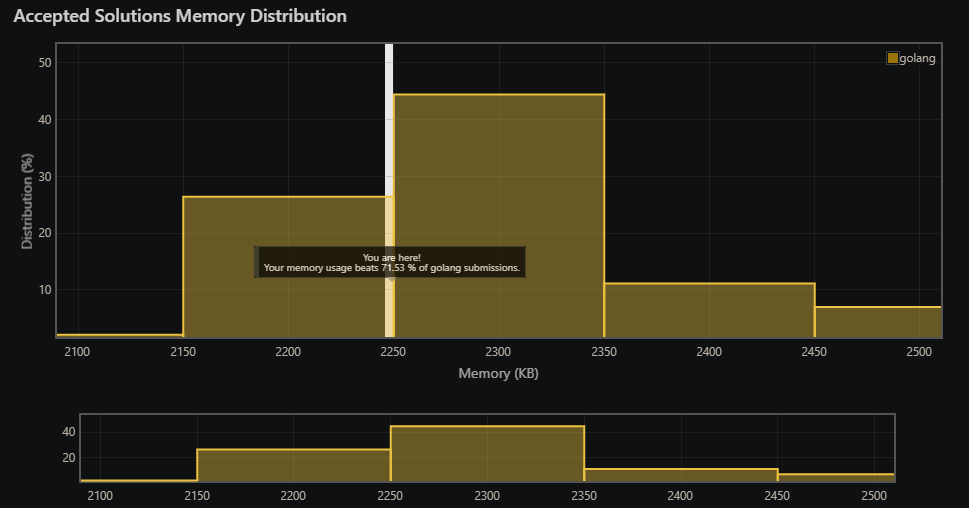고정 헤더 영역
상세 컨텐츠
본문
728x90
반응형



A school is trying to take an annual photo of all the students. The students are asked to stand in a single file line in non-decreasing order by height. Let this ordering be represented by the integer array expected where expected[i] is the expected height of the ith student in line.
You are given an integer array heights representing the current order that the students are standing in. Each heights[i] is the height of the ith student in line (0-indexed).
Return the number of indices where heights[i] != expected[i].
Example 1:
Input: heights = [1,1,4,2,1,3]
Output: 3
Explanation:
heights: [1,1,4,2,1,3]
expected: [1,1,1,2,3,4]
Indices 2, 4, and 5 do not match.Example 2:
Input: heights = [5,1,2,3,4]
Output: 5
Explanation:
heights: [5,1,2,3,4]
expected: [1,2,3,4,5]
All indices do not match.Example 3:
Input: heights = [1,2,3,4,5]
Output: 0
Explanation:
heights: [1,2,3,4,5]
expected: [1,2,3,4,5]
All indices match.Constraints:
- 1 <= heights.length <= 100
- 1 <= heights[i] <= 100
My code
func heightChecker(heights []int) int {
if len(heights) <= 1 {
return 0
}
temp := make([]int, len(heights))
copy(temp, heights)
// for _, v := range heights {
// temp = append(temp, v)
// }
quickSort(temp, 0, len(temp)-1)
count := 0
for i := range temp {
if temp[i] != heights[i] {
count++
}
}
return count
}
func quickSort(arr []int, l, r int) {
if l < r {
p := partition(arr, l, r)
quickSort(arr, l, p-1)
quickSort(arr, p+1, r)
}
}
func partition(arr []int, l, r int) int {
pivot := arr[r] // pivot
i := (l - 1)
for j := l; j <= r-1; j++ {
if arr[j] <= pivot {
i++
arr[i], arr[j] = arr[j], arr[i]
}
}
arr[i+1], arr[r] = arr[r], arr[i+1]
return i + 1
}https://go.dev/play/p/6b3F0PVS6Jd
- I implemented it by using Quick sort.
- When i used temp := heights, temp just took address from it.
- So I used copy.
- Also we can use append.
- I don't have a idea how to reduce size.
- Random pivot will work maybe...?
sample 0 ms submission
func heightChecker(heights []int) int {
s := make([]int, len(heights))
i,count := 0,0
copy(s, heights)
sort.Ints(s)
for i < len(s) {
if s[i] != heights[i] {
count++
}
i++
}
return count
}- So simple code.
- This uses sort function
- I didn't use because when I get interview, they will ask what soring method is good.
sample 2 ms submission & sample 2100 KB submission
func heightChecker(heights []int) int {
var heightFreq [101]int
for _,i := range heights {
heightFreq[i]++
}
result := 0
currentHeight := 0
for i:=0; i < len(heights); i++ {
for heightFreq[currentHeight] == 0 {
currentHeight++
}
if currentHeight != heights[i] {
result++
}
heightFreq[currentHeight]--
}
return result
}- I guess more than slice, fixed array uses less size?
- Array must have fixed constant.What we can deduce from these benchmark would be a slice with declared length would almost always perform better. Whereby over allocating or under allocating the capacity would certainly impact the performance of the system you are building.
https://dev.to/jonathanlawhh/golang-slice-vs-array-and-should-i-declare-my-slice-size-4kng - This code allocate value in 101 array. I think 100 would be better.
- First for loop has frequency which how many numbers array has.
- Second for loop will check currentHeight based on array index.
- if currentHeight is 0, but heightFreq has 0 value, then currentHeight will increase.
- If not, if condition checks height has numbers in order.
- When they are not match, result will increase.
- End of for loop, heightFreq will decrease.
- I think very effective code.
Pratice
func heightChecker(heights []int) int {
heightfreq := make([]int, 101)
for _, v := range heights {
heightfreq[v]++
}
check := 0
result := 0
for _, v := range heights {
for heightfreq[check] == 0 {
check++
}
if check != v {
result++
}
heightfreq[check]--
}
return result
}

sample 3 ms submission
func heightChecker(heights []int) int {
var heights_sort = make([]int, len(heights))
copy(heights_sort, heights)
var result int = 0
sort.Ints(heights_sort)
for i, _ := range heights {
if heights_sort[i] != heights[i] {
result++
}
}
return result;
}sample 2200 KB submission
func heightChecker(heights []int) int {
freq := make([]int, 101)
for _, val := range heights {
freq[val]++
}
cur := 1
res := 0
for _, h := range heights {
for freq[cur] == 0 {
cur++
}
if cur != h {
res++
}
freq[cur]--
}
return res
}sample 2300 KB submission
func heightChecker(heights []int) int {
s := make([]int, len(heights))
i,count := 0,0
copy(s, heights)
sort.Ints(s)
for i < len(s) {
if s[i] != heights[i] {
count++
}
i++
}
return count
}728x90
반응형
'Go > Leet Code' 카테고리의 다른 글
| Array 101 Find All Numbers Disappeared in an Array in Go (0) | 2022.03.19 |
|---|---|
| Array 101 Third Maximum Number in go (0) | 2022.03.19 |
| Array101 Remove Element (0) | 2022.03.15 |
| Array 101 Sort Array By Parity (0) | 2022.03.15 |
| Array 101 Move Zeroes in Go (0) | 2022.03.10 |





댓글 영역